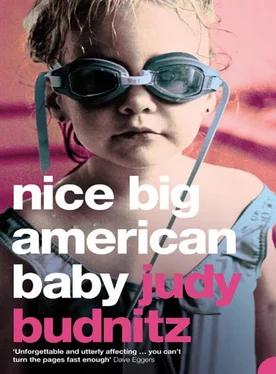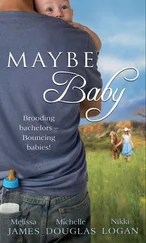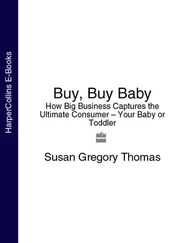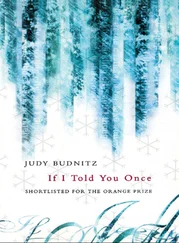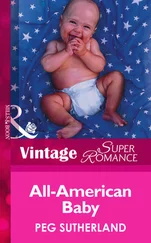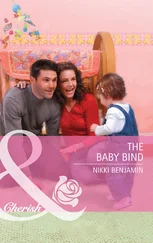We didn’t know what Joel was doing over there. He probably didn’t call Nadia either. She showed us a picture of her daughter, but it was an old Polaroid and too faded for us to make out the features. A bleached ghost, with a cat clearly visible in the darkened doorway beyond. Cat’s eyes were red. The ghost’s shoes were untied. Surely, if it was her daughter, she would have tied them before taking the picture? Later we heard that Joel had been befriending journalists, bribing locals, sneaking into places he wasn’t supposed to be.
Of course we saw it on the news, the ugly things that were happening over there, but we didn’t really think that Joel was in the midst of it. There’s a small part of me that wonders if what we see on the news isn’t real, if it’s fabricated, re-enacted. I swear it’s the same shabby group of refugees each time, same line of tanks, the same bandaged heads, even the same flies. Same barbed-wire fences, same hand-dug grave and sloppily wrapped corpse. Same corn-fed private telling the camera he can’t wait to get home to his baby daughter. Same concluding shot of a child’s toy crushed in a soldier’s muddy bootprint. It’s as if all the TV stations are borrowing the same bunch of actors.
Oh, I don’t really think that. I know those things are really happening. I mean, I know now.
We might never have known what happened—Joel would never have told us—if a photojournalist hadn’t been there and snapped a picture. And so Joel had to explain—we read the quotes in the newspapers—how he (and Malcolm, the mysterious Malcolm) had talked to people who sent them to a particular neighborhood where they’d seen the girl on a deserted street and thought she was the right one. Something about the shape of a hand, the tentative, up-on-the-toes walk, the translucent ears? I don’t know. He wasn’t thinking, he said, he just rushed out and grabbed her and then the shooting started.
He said he didn’t know about the snipers on the rooftops, he said he thought the street was deserted. He didn’t realize people were hiding behind locked doors and boarded windows, waiting in their homes, afraid to go out. He didn’t know that only children were sent out to do errands, because a child, being smaller, might have a better chance of dodging bullets. They might not shoot a child.
He said that when he ran out into the street he only wanted to bring the girl home, and when the shooting started he only wanted to protect her. He said he was trying to keep her out of the line of fire, trying to block the bullets. But it’s clear from the photograph, in which he’s looking to one side and gripping to his chest a bundle of hair and dress and dangling legs, that he’s using her body to shield his own.
We saw the photograph, read about it. There’s a dark wet spot on the little girl’s back, you can see Joel’s wedding ring, you can see how bushy his beard’s grown. He’s wearing a hat we’d never seen before, and though the eyes are a smudge you can see his mouth hanging open, slack, completely unmoored.
We wanted to tell Nadia, couldn’t tell Nadia. It wasn’t really our place, we decided. We lacked the vocabulary. I doubt Joel called her. What would he say? She found out somehow, I suppose there were people she could call, family, friends, I suppose she’s not as alone as she seems.
He came back eventually. Returned to the States, that is. He didn’t come to see any of us. We heard he came back without the daughter. Was that because he didn’t find her? Or was that her, the girl in the photograph? It couldn’t be. We told each other that, most likely, he had found the girl, and she’d taken one look at this huge foreign-talking man and decided to stay where she was. Probably she’s happier with her father, we told each other. Probably she has a whole family of her own. We pictured a father, now, who was a counterpoint to Joel: small, graceful, clean-shaven, stouthearted.
Joel avoided us. Fine. We didn’t want to know what he’d brought back with him. Infection. Those diseases they have over there. Odorous invasions of the skin and digestion, diseases of neglect. The ones the travel books warn you about.
I wonder what that’s like. There have been times when I’m sure I’m dying: when my heart flutters in the middle of the night for no reason, when a loneliness or craving is so strong it nauseates me—but of course I’m not. I wonder if living close to the edge of desperation like that makes you feel more alive. It’s a cliché, I know, but most clichés have a core of truth, don’t they? One time I tried to ask Nadia about it—whether she’d felt more alive back there in her homeland with death all around. She didn’t seem to understand the question. She didn’t see a difference between there and here. As if for her it was all the same: Life was perilous everywhere, a teetering tightrope walk from one minute to the next.
We wondered what would happen to Joel and Nadia. Surely they couldn’t go on together? How could he explain it? Even if it wasn’t her daughter, how could he have done such a thing? She wouldn’t be able to stay with him. How could she? She might even go back. Maybe she’d realize that her kind of people demand a sort of heroism she won’t find here.
We felt certain Joel wouldn’t have hidden behind the bodies of our hypothetical daughters. He would have taken a bullet, rather. We all knew this. Nadia and her kind were different, they counted less. They were one degree closer to being objects, to his mind. He might deny it, but actions speak louder, don’t they? In moments of panic, the true self comes to the surface.
And she had abandoned her own daughter. How could they stay together, knowing these ugly truths about each other? So much for frankness.
To be rid of Nadia. Hadn’t that been the intent all along? No one wanted to say it outright, but I will. Yes, it was. But now the prospect of a solitary Joel was no longer appetizing. We knew that, despite the avoidance, Joel was in need of our friendship and pity, probably for the first time. But now we didn’t feel like giving it to him; we wanted to lavish it on someone more worthy.
Suddenly, we didn’t want Nadia to leave.
“Have you seen Nadia?” we asked each other. “He doesn’t let her out,” we said. “He’s holding her hostage in that miserable house.”
We organized a rescue mission. “We’ll break the door down if we have to,” we said. Of course we didn’t have to. Joel opened the door with bowed head. “Where is she?” we said, pushing our way in. We were momentarily distracted; Joel looked like he might tolerate, for once might even welcome, a hug or a kiss on the cheek. We steeled ourselves and pressed on.
Конец ознакомительного фрагмента.
Текст предоставлен ООО «ЛитРес».
Прочитайте эту книгу целиком, купив полную легальную версию на ЛитРес.
Безопасно оплатить книгу можно банковской картой Visa, MasterCard, Maestro, со счета мобильного телефона, с платежного терминала, в салоне МТС или Связной, через PayPal, WebMoney, Яндекс.Деньги, QIWI Кошелек, бонусными картами или другим удобным Вам способом.
